Solution To Uninstall MSIDNTFS.SYS from Windows 2000
Get a look at different infections relating to MSIDNTFS.SYS| Browser Hijacker | Nohair.info, Somesearchsystem.com, Njksearc.net, CoolWebSearch, Avtain.com, Safehomepage.com, Websearch.helpmefindyour.info, Local Moxie |
| Ransomware | Wildfire Locker Ransomware, Dr Jimbo Ransomware, Fadesoft Ransomware, Ranion Ransomware, Havoc Ransomware |
| Spyware | HataDuzelticisi, WinIFixer, WinXProtector, HelpExpressAttune, Mdelk.exe, Worm.Win32.Netsky, SpyWarp, Email-Worm.Agent.l, SecureCleaner, TSPY_EYEBOT.A, SemErros, CommonSearchVCatch, Stealth Website Logger, Etlrlws Toolbar |
| Adware | Coupon Pigeon, IMNames, Dcads, NavExcel, 12Trojan.Win32.Krepper.ab, Midicair Toolbar, Redirect, WebDir, MyCustomIE, Adware:Win32/DealsPlugin, MyWay.p, Virtumonde.NBU, CouponsandOffers |
| Trojan | Virus.Win32.Sality.ag, Win32/Heur, I-Worm.Lentin.f, TROJ_RANSOM.AAF, Trojan.Small.ayg, Hoax.Renos.gd, Trojan.Spy.Bancos.XW, PWSteal.Simda, Slenfbot.AJT, Vapsup.fjd, Trojan.Win32.Rozena.hhc, Trojan.Nitol.B |
Get Rid Of MSIDNTFS.SYS Tips For From Your Infected System
MSIDNTFS.SYS is a highly malicious program which has infected a number of System recently. This nasty program is designed to target mainly the Windows operating System. In order to invade its targeted System it doesn't need permission from user, instead of that it use deceptive ways. After infecting your System it start screwing System as well as browser settings. As a result of this your System will run weirdly. Because of its hideous features it can stay in the compromised System for a long time without detection. In order to sneak in the System it depend on several tricky ways such as software bundler, spam emails, malicious website, infected storage device etc. Upon its successful installation, it start a series of malicious activities in the System which put it in poor condition. If you don't want to take chance with your System as well as privacy then do not hesitate in Deletion of MSIDNTFS.SYS.
Method 1 : Start Your System In Safe Mode With Networking
Method 2 : Deleting MSIDNTFS.SYS From Control Panel
Method 3 : Stop Related Process To MSIDNTFS.SYS From Task Manager
Method 4 : Get Rid Of MSIDNTFS.SYS From Registry Editor
Method 5 : Get Rid Of Unwanted extensions, add-ons, plug-ins from Firefox
Method 1 : Start Your System In Safe Mode With Networking
For Windows XP/Vista/7
- Go to the start menu > choose Restart option.
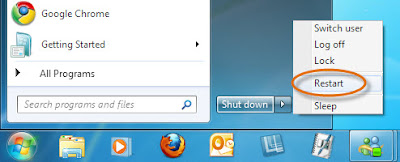
- Start pressing the F8 key once your System become active.

- It will open the Advanced boot options on screen.
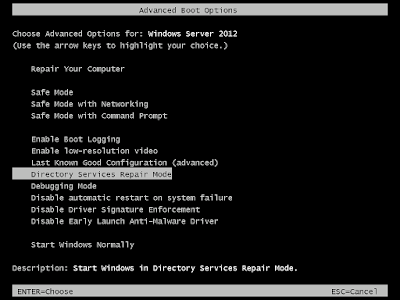
- Select Safe mode with networking > press Enter key.
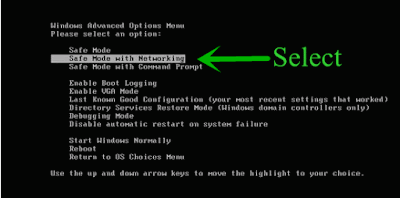
For Windows 8/10
- From your screen, press power button and click Restart.
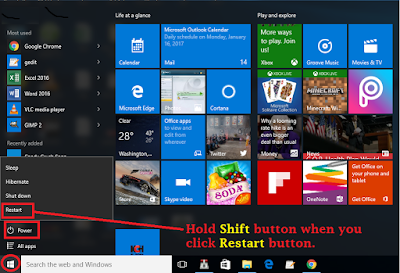
- From choose an option Window, select Troubleshoot option.
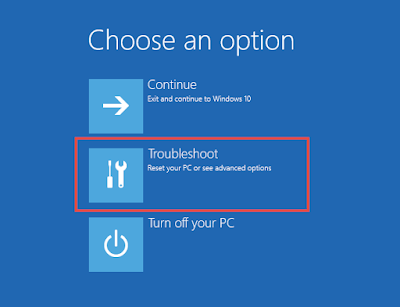
- Then click on the 'Advanced option.
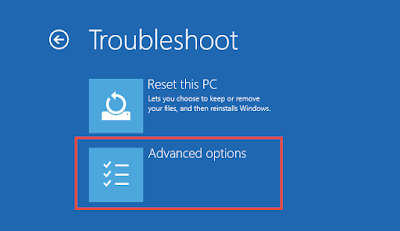
- After that select Start-up setting option.
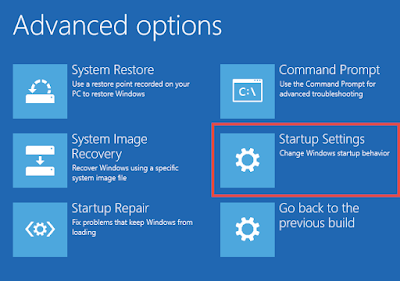
- Select Enable safe mode > press the Restart button.
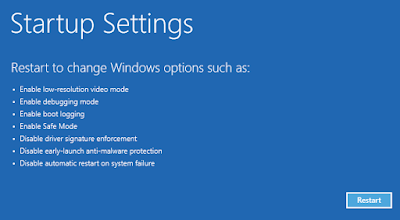
- In order to enable Safe Mode With Networking, Press F5 key.
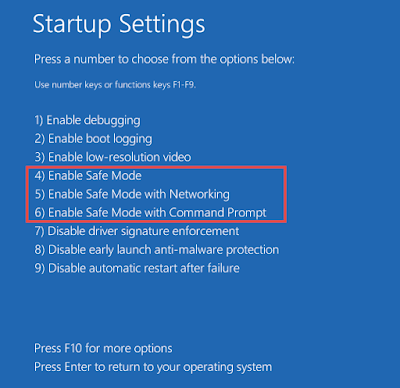
Method 2 : Deleting MSIDNTFS.SYS From Control Panel
Get Rid Of MSIDNTFS.SYS From Windows 7/Vista
- Open the start menu and then select Control panel.
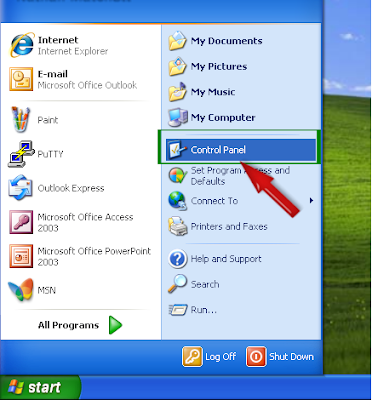
- From the Programs group, select remove a program option.
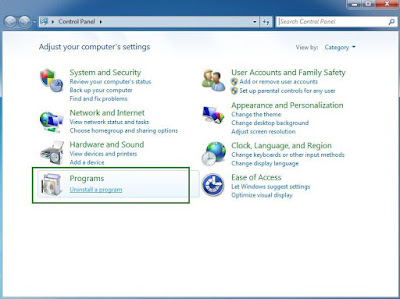
- Select MSIDNTFS.SYS related program > select uninstall/Change.
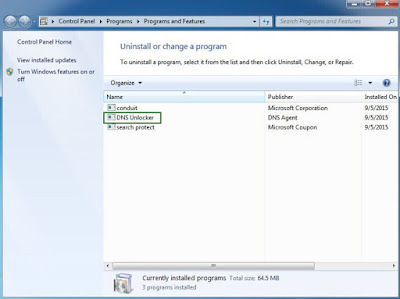
Get Rid Of MSIDNTFS.SYS From Windows 8
- Press the Win + R buttons at once to open the Run Box.
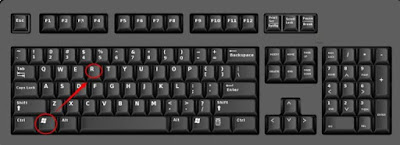
- In the Run box type Control panel and press Enter key.
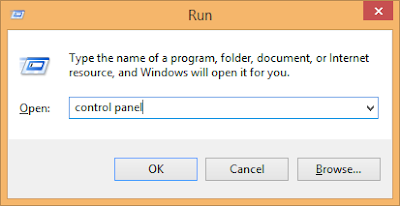
- Click remove a program option under the Programs group.
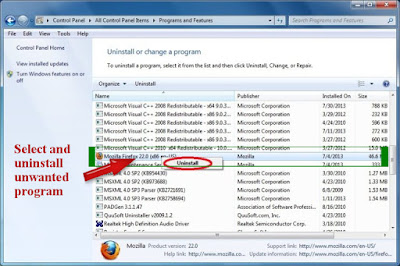
- From installed program select MSIDNTFS.SYS > click remove option.

Get Rid Of MSIDNTFS.SYS From Windows 10
- First click on Start button and select Setting option.
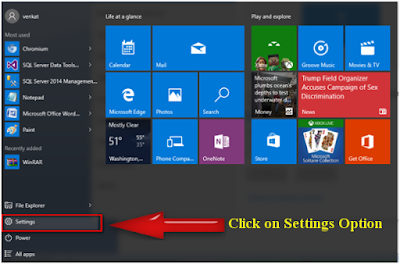
- From the settings menu, select the System option.
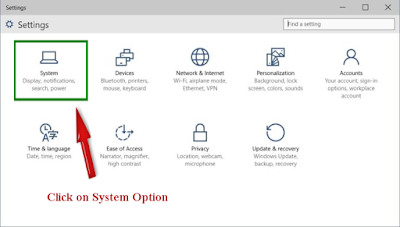
- Now select 'Apps & features' option from the left panel.
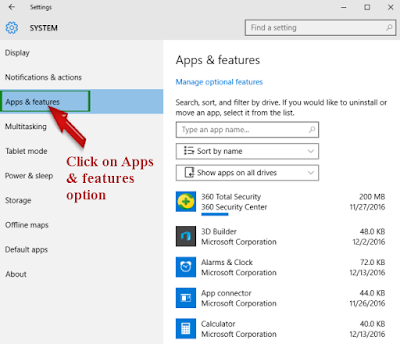
- Select MSIDNTFS.SYS related program and Get Rid Of them.
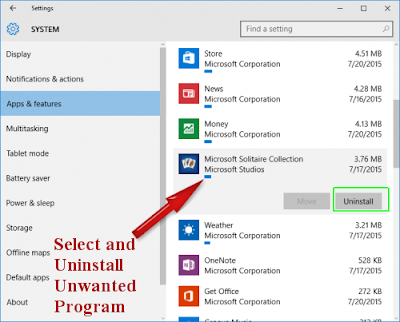
Method 3 : Stop Related Process To MSIDNTFS.SYS From Task Manager
- Press the ALT+Ctrl+Del buttons at once.
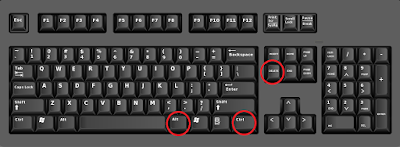
- Then select the Task manager option from the opened list.
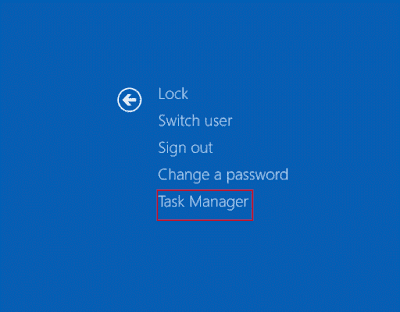
- Select malicious or MSIDNTFS.SYS related process.
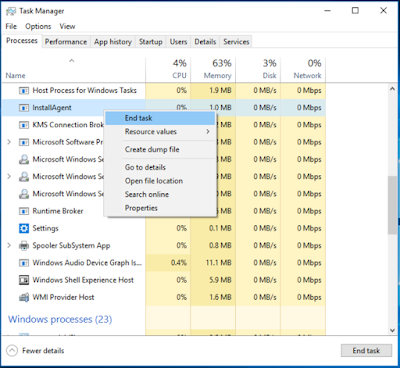
- Finally click on the End Task button.
Method 4 : Get Rid Of MSIDNTFS.SYS From Registry Editor
- Press Win + R button together .

- It will open the Run window on screen.
- Type regedit > click on OK button.
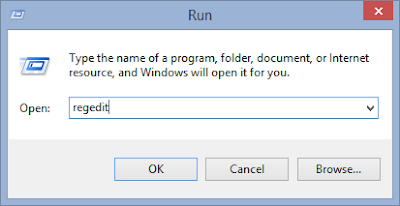
- Search for MSIDNTFS.SYS related registry and remove them.
HKEY_LOCAL_MACHINESYSTEMCurrentControlSetServicesWpm
HKEY_CURRENT_USERSoftwareMicrosoftInternet ExplorerMain ‘Default_Page_URL’
HKEY_LOCAL_MachineSoftwareClassesWin32.TrojanDropper.Vidro
HKEY_CURRENT_USERSoftwareMicrosoftWindowsCurrentVersionRun ‘.exe’
HKCUSoftwareMicrosoftWindowsCurrentVersionInternet Settingsrandom
HKEY_LOCAL_MACHINESOFTWAREMicrosoftWindowsCurrentVersionrunrandom
HKEY_CURRENT_USERSoftwareMicrosoftWindowsCurrentVersionInternet Settings ‘CertificateRevocation’ = ’0
Method 5 : Get Rid Of Unwanted extensions, add-ons, plug-ins from Firefox
Get Rid Of MSIDNTFS.SYS From Internet Explorer
- First start the Internet explorer browser.
- Click on the Gear icon from right-top corner.
- Click on 'Manage add-ons' > select Tool-bars and Extensions tab.
- Search for MSIDNTFS.SYS related add-ons > click on 'Disable'.
- If add-on can't be deleted then click on remove and click Close.

Get Rid Of MSIDNTFS.SYS From Mozilla Firefox
- Start Mozilla Firefox browser and go to menu.
- You will get Add-ons Manager tab on your screen.
- In the add-on manager tab, select Extension or Add-on panel.
- Select MSIDNTFS.SYS related add-on > click on remove button.
- If the pop-up appear, click on Restart now option.
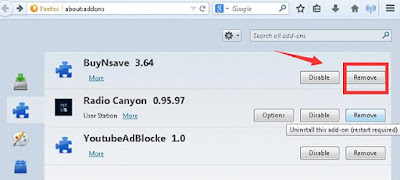
Get Rid Of MSIDNTFS.SYS From Google chrome
- Start the Google Chrome browser and click on menu button.
- Then click on the More tools and Extensions option.
- Find out suspicious extension related to MSIDNTFS.SYS.
- Finally click on 'Recycle Bin' to Get Rid Of unwanted extension.

Get Rid Of MSIDNTFS.SYS From Microsoft Edge
Because there is no extension in the Microsoft Edge, hence you need to reset the browser settings to Get Rid Of MSIDNTFS.SYS.
- Open Microsoft Edge on your System.
- Go to right top corner > tap on More (...) icon > go to Settings.
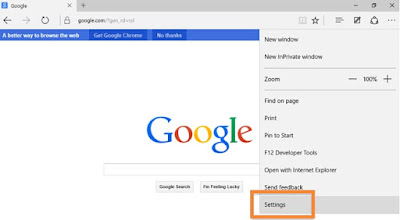
- Now select A specific page or pages from the Open option.
- Select Custom option > enter URL of your desired homepage.
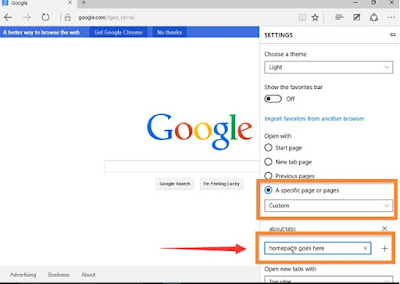

No comments:
Post a Comment